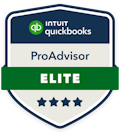DJL's No-Stress Guide to Summer
Summer is often seen as a time to slow down, unwind, and soak up the sun — but for your finances, it’s no time to go on autopilot.
Behind the vacations, side gigs, and summer jobs, there are a number of financial tasks that are easy to overlook but can make a big difference by the time the year wraps up.
At DJL Accounting & Consulting Group, we believe that every new season brings a fresh opportunity to check in on your financial well-being.
As summer officially kicks off, it’s the perfect time to pause, plan, and make a few smart money moves.
Before you hit the beach or book that getaway, take a few minutes to explore DJL’s No-Stress Guide to Summer— a seasonal checklist designed to help you stay financially on track while you soak up the sunshine.
1. Budgeting for Vacations & Travel
Travel is one of the biggest summer expenses for many individuals and families — and while it’s worth enjoying, it’s also a common source of credit card debt and budget blowouts.
To make the most of your trip without financial stress, it’s important to plan, stay organized, and spend money intentionally.
Here’s how to travel smarter this summer:
- Set a realistic budget. Include all major and minor expenses — transportation, accommodations, food, activities, and often-overlooked costs like parking, gas, tips, baggage fees, and souvenirs.
- Build in a buffer. Add 10–15% to your total budget to cover unexpected costs like last-minute excursions, upgrades, or price changes.
- Prepay when possible. Booking hotels, activities, and transportation in advance can lock in better rates and reduce what you’ll spend during the trip.
- Track your spending as you go. A common mistake is budgeting upfront but not checking in during the trip. Use a notes app or budgeting tool to stay on track in real time.
- Use a dedicated travel account. Keeping your travel funds separate from everyday spending makes it easier to manage and avoids budget confusion.
- Leverage rewards and points wisely. Redeem points for flights or hotels if available but avoid unnecessary spending just to chase rewards.
- Plan free or low-cost activities. Parks, beaches, local festivals, walking tours, or museum free days can round out your trip and help you cut costs without sacrificing fun.
- Use credit cards with caution. Credit cards can offer useful perks and fraud protection, but only if you can pay the balance in full. Carrying over travel expenses at high interest defeats the purpose of budgeting.
Planning your finances before your trip helps you enjoy your vacation while protecting your peace of mind when you return.
2. The Tax Side of Seasonal Work
Many teens use the summer to earn extra income through gigs like babysitting, lawn care, pet sitting, or freelance work.
While these jobs may feel informal, they’re often considered self-employment — even if paid in cash — and may be subject to self-employment tax.
Filing can look a little different, so if you're unsure how to handle this type of income, DJL is here to help. Self-employed individuals can also find more information here.
Here’s what to keep in mind when it comes to seasonal earnings:
- W-2 jobs still require tax planning. Many students and part-time workers fill out Form W-4 incorrectly — especially if it’s their first job. Since the IRS has redesigned the form in recent years, it’s important to follow the updated instructions or ask for help if you're unsure.
- Watch for multiple income sources. Taking on more than one summer job could push your total income into a higher tax bracket — and increase the risk of forgetting to report a W-2. Make sure to track each job’s income and paperwork carefully.
- Set money aside for taxes. Unlike W-2 jobs where taxes are typically withheld, gig or freelance income may not have anything taken out. Set aside 25–30% of what you earn to avoid owing a surprise balance next spring.
- Track your income and expenses. Whether you're getting paid by check, cash, or a platform like Venmo, keep a simple log of what you earn — and save receipts for any deductible expenses, especially if you're doing gig work.
- Don’t forget about state taxes. Even if you’re under the federal filing threshold, your state might still require you to file — especially if tax was withheld and you're due for a refund.
Summer is a great opportunity to earn extra income, build experience, or help your teen learn financial responsibility — just don’t let taxes sneak up on you. A little planning now can prevent filing-time frustration later.
3. Tax Benefits for Summer Care Expenses
Summer break often creates a childcare gap for working parents, and many families rely on day camps, babysitters, or daycare programs to help fill that need.
But it’s not just children who may need care — families supporting older or disabled dependents may also face additional caregiving costs during the summer months.
The good news is that some of these expenses may qualify for the Child and Dependent Care Credit, offering meaningful tax relief when care is needed so you (and your spouse, if filing jointly) can work or actively look for work.
This nonrefundable credit allows you to claim a percentage of qualified care expenses for children under age 13, or for a dependent of any age who is physically or mentally unable to care for themselves.
What Counts as a Qualifying Expense?
- Day camps (including specialty programs like art, STEM, or sports) — as long as the primary purpose is care, not education or recreation only
- Daycare or nanny services during work hours
- Before- and after-care programs tied to school schedules
- Household employees or in-home caregivers, if properly documented
Note: Overnight camps, tutoring, and recreational programs that are not primarily for care do not qualify, even if they occur during working hours.
How Much Can You Claim?
The credit is determined by your income and a percentage of the expenses you pay for the care of qualifying individuals, allowing you to work, look for work, or attend school.
Find out if you’re eligible to claim the Child and Dependent Care Credit here.
Summer caregiving expenses can add up quickly — but with the right records and planning, they may help lower your tax bill.
The Child and Dependent Care Credit is one way to turn seasonal responsibilities into a smart financial advantage.
4. Staying on Top of Estimated Tax Payments
If you’re self-employed, freelance, or receive income not subject to withholding (like rental income or dividends), you’re likely responsible for estimated tax payments.
And summer includes two major deadlines:
- Q2 Estimated Tax Payment: Due June 15
- Q3 Estimated Tax Payment: Due September 15
Missing these deadlines or underpaying can lead to IRS penalties — even if you pay everything in full when you file next April.
How to stay ahead:
- Review your income so far this year to make sure your payments reflect any increases.
- Work with a DJL accountant to calculate your projected tax liability and adjust your payments if needed.
- Set calendar reminders for each quarterly due date to avoid falling behind.
- Use IRS Form 1040-ES to help calculate what you owe or make payments online through the IRS Direct Pay tool.
Summer is an ideal time to re-evaluate your earnings, especially if you’ve had any major changes in income or expenses in the first half of the year.
5. Planning for Big-Ticket Summer Purchases
Summer often inspires homeowners and families to invest in larger purchases — from long-overdue home renovations and new appliances to backyard upgrades, pools, or even recreational vehicles like boats, campers, or ATVs.
While these items can enhance your lifestyle or even increase your property value, they can also stretch your budget and create ripple effects on your long-term financial goals.
That’s why it’s important to approach big-ticket summer purchases with both enthusiasm and strategy — considering not just the upfront cost, but also the financing, tax implications, and long-term financial impact.
Tax Credits and Deductibility
Some purchases — particularly home improvements related to energy efficiency — may qualify for federal or state tax credits.
These include:
- Solar panels or solar water heaters
- Energy-efficient windows, doors, or roofing
- High-efficiency HVAC systems or heat pumps
- Insulation upgrades
The Energy Efficient Home Improvement Credit and Residential Clean Energy Credit can reduce your tax liability while helping you save on utilities in the long run.
Be sure to review eligibility requirements or talk with a DJL tax professional before starting a big project.
Financing & Cash Flow Considerations
Many summer purchases are made using promotional financing — “no interest for 12 months” or low-down-payment options — but it’s important to read the fine print:
- Will deferred interest apply if not paid in full by the deadline?
- Are there prepayment penalties or variable interest rates?
- Does this purchase align with your budget and financial goals?
Even large cash purchases should be weighed against your emergency fund, debt obligations, and upcoming expenses (like back-to-school, fall taxes, or holiday travel).
A financial buffer is still essential — even in the sunny season.
A proactive approach to big summer purchases doesn’t mean avoiding them — it means making them wisely.
By weighing the full financial picture and consulting with an accountant at DJL ahead of time, you can enjoy the upgrades without the financial heat.
Final Thoughts: Keep Your Finances Cool While the Weather Heats Up
Summer is for family, fun, and maybe even a little downtime — but staying financially organized can help you avoid the stress of catching up later in the year.
Whether you're budgeting for a trip, managing a side gig, or helping your kids navigate summer jobs, the right planning now can make a big difference by the time fall (and tax season) rolls around.
If you're not sure where to start, DJL Accounting & Consulting Group is here to help. From personal budgeting to small business planning and tax prep, we’re committed to helping you stay on track — in every season.
Need help getting your summer finances in order? Contact us today to schedule a check-in.
- Debra Rodway's blog
- Log in to post comments



